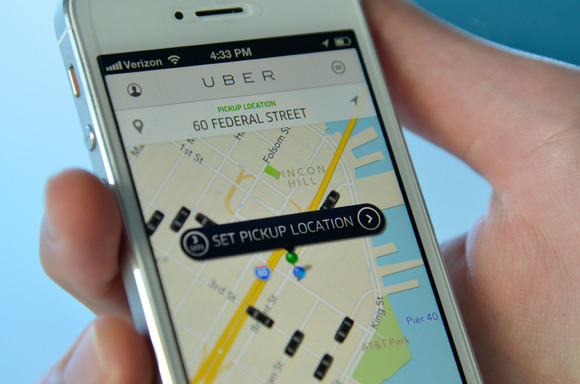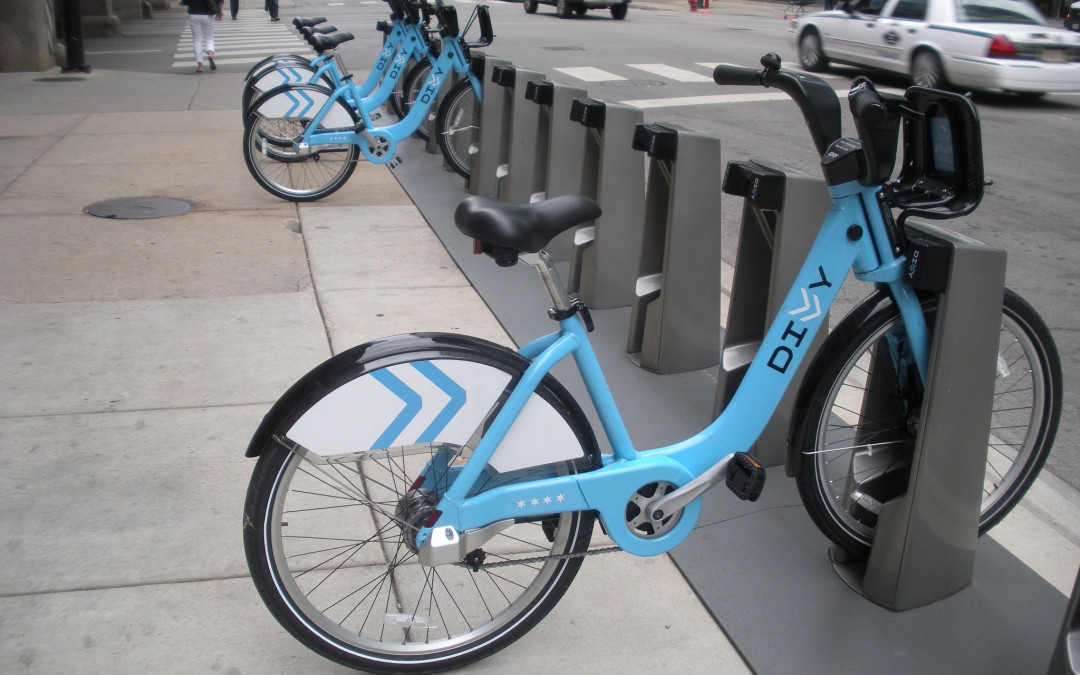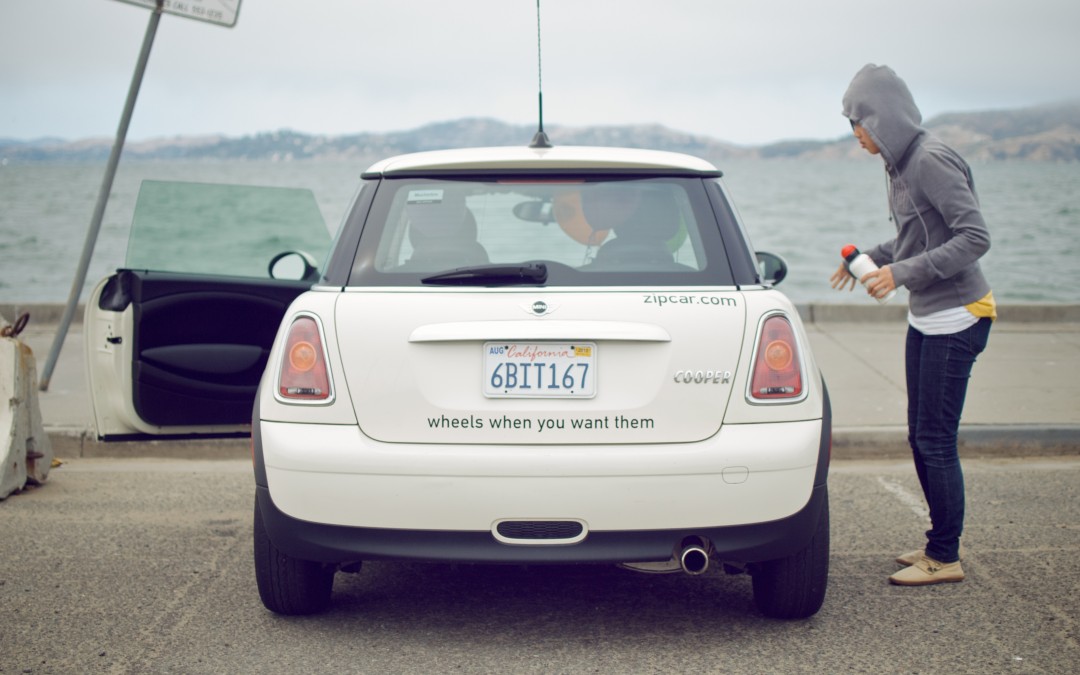
by Jaelen Loche | Jan 31, 2015 |
By Carolyn Said Living car-free or car-light in San Francisco is increasingly easy — and it’s not just thanks to Uber. Car sharing is quietly spreading throughout the city, allowing people to rent cars by the hour or mile, pick them up at widely dispersed locations, reserve them with a smartphone, and unlock them with a phone or credit card. “Technological advances are giving people new and convenient ways to get around more freely without having to own a car,” said CalPIRG spokeswoman Diane Forte, whose consumer group recently released a report on the growth of high-tech transportation options nationwide. It found that San Francisco is a national leader in innovative ways to get around town, second only to Austin, Texas. To support car sharing — and try to reduce car use — San Francisco is experimenting with reserving up to 900 on-street parking spaces sprinkled throughout the city for the exclusive use of car-sharing vehicles. The three companies getting spaces over the two-year pilot program, which is being phased in slowly, are City CarShare, a nonprofit; Avis’ Zipcar, perhaps the best-known service; and Getaround, a “peer-to-peer” service that helps regular people rent their cars to others. To read the full article, click...

by mattchristensen00 | Jan 14, 2015 |
By Sarah Goodyear Last fall, when a group of deep-pocketed investors took over Alta Bicycle Share—the troubled company that operates bike-share systems in New York, Washington, D.C., Chicago, and several other major cities—one of the first moves they made was to bring on Jay Walder to head up the company. Walder has a long track record running big municipal transportation systems, in New York, London, and Hong Kong. Along with the shift of headquarters from Portland, Oregon, to New York, the hire was a signal that things were going to be different for the bike-share pioneer, which had been struggling financially, going forward. Wednesday, the company’s transformation took another step, with the announcement that it has a new name, Motivate. Walder says it’s meant to convey energy, action, movement, and evolution. I talked with him by phone to find out what he’s been doing since he took over two and a half months ago and how the rebranded, refinanced company hopes to take bike-share into the future. The interview has been condensed and edited. My first question is about how you’re developing business models. How are these systems getting funded? Are the funding models sustainable? What is new on the business side? I think the question is well placed. There are any number of examples of good ideas that in the end didn’t have a sustainable financial foundation. We’ve seen very different views for funding models for very different cities across the U.S. and even globally. At one end of the spectrum is New York, where we have a model in which we are not receiving any public support at...

by mattchristensen00 | Oct 31, 2014 |
By Serena Saitto As the oldest of three kids, Baily Deeter was often the last to be picked up from school by his mother. Then Uber Technologies Inc. came along. When Baily started ninth grade in August, his parents gave him an account for the mobile car-booking application, under his dad’s name and credit card. Now rather than wait for his mom, the 14-year-old taps on his iPhone to order an Uber car for the seven-mile ride home from school in Atherton, California. “I’m very happy to have an Uber account,” said the teen. “It shows the trust that my parents have placed in me and it allows me to get from place to place in a flash.” His father, Byron Deeter, is a venture capitalist at Bessemer Venture Partners, who said he regrets not having invested in Uber. Like the Deeters, parents in cities from Los Angeles to New York who can’t make the drive themselves are also starting to use car-booking and ride-sharing apps to ferry their kids around. Parents are particularly turning to the apps for teenagers’ transportation needs to sports events and parties, said Brian Solis, an analyst at Altimeter Group, a San Mateo, California-based firm that researches the impact of new technologies. The apps let parents monitor where their children are during rides, something taxis and other modes of transport still don’t offer. “Having an Uber account is a growing trend, especially among high schoolers, reflective of the trust-based sharing economy,” said Solis, who also pays for an Uber account for his 17-year-old son. Car Ownership The use of Uber and other transportation apps...

by mattchristensen00 | Oct 24, 2014 |
By Eric Jaffe The rise of bike-share as a popular mode of city transportation has been swift and impressive. A new report on the state of North American bike-share, which gives new meaning to the word “comprehensive,” puts the total number of users at more than 1.1 million as of 2012. And that’s before the launch of new systems in major cities like Chicago, San Francisco, and New York. Bike-share is not only here to stay—it’s still getting here. Unfortunately, it’s been especially slow to arrive for poor residents. Bike-share has struggled to reach low-income riders despite considerable (and continuing) efforts by leading systems—Capital Bikeshare in Washington, D.C., Hubway in Boston, and B-Cycle in Denver notable among them—and these struggles persist. Until bike-share resolves these income disparities, its development from niche amenity into legitimate form of public transit can’t be complete. Data in the new bike-share report underscore just how systemic the equity problem is. Let’s take a look first at numbers in the Twin Cities. Nice Ride is among the most successful bike-share system in the United States, and it’s certainly tried to reach poorer residents. But it still has room for improvement as far as equity goes. As our chart shows, low-income bike-share members are under-represented in the population, while high-income members are over-represented: (CityLab) Charting the figures Salt Lake City, we find the same trend to an even greater...

by mattchristensen00 | Oct 16, 2014 |
By Mike McCamish, Director, Greentree Property Management Innovation in apartment ownership and management is not just software or gadgets. It’s about changing how we think about the amenities and services that fulfill the needs of residents and our investment in the properties. Car sharing is one of those innovations, and the apartment industry is seeing significant advantages in its adoption, driven by resident demand and demographic trends. Apartment owners and operators across the country, primarily in urban areas, are making car-sharing services such as Zipcar and CityCarShare available on-site for residents and in some cases, also to the public. A variation on basic car sharing, these car-sharing services first became active in “green”-minded communities such as Portland, Oregon; Austin, Texas; Vancouver, Canada; and San Francisco. Car sharing is a sought-after amenity for renters who do not want the added expense of owning a car but still need a car from time to time. It reduces the number of cars on the road and the auto-emission impact on the environment. Property owners implementing car sharing In San Francisco, Veritas Investments and its affiliates RentSFNow and Greentree Management, which together control one of the largest apartment portfolios in the City’s urban core, have seen such strong reception to a Zipcar pilot efforts two years ago that they expanded the pool to several communities. Now Zipcar’s largest host in San Francisco, the firm has more than 30 Zipcars in properties that can accommodate the parking, security and access requirements, with more underway. Equity Residential in 2011 launched a program to put Zipcars in 30 U.S. properties, and its website now reports Zipcars...






